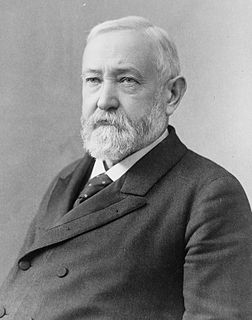A Quote by Geraldine Brooks
If a man is to lose his fortune, it is a good thing if he were poor before he acquired it, for poverty requires aptitude.
Related Quotes
You can’t lose with the stuff I use!”; “Some may say money is the root of all evil, but being in poverty is a damn shame!”; “The best thing you can do for the poor is not be one of them”; “God doesn’t want you to have your pie-in-the-sky, by and by, when you die. He wants you to have it now with a cherry on top!”; and “If it’s that difficult for a rich man to get into heaven, think how terrible it must be for a poor man to get in. He doesn’t even have a bribe for the gatekeeper!
To be a textual critic requires aptitude for thinking and willingness to think; and though it also requires other things, those things are supplements and cannot be substitutes. Knowledge is good, method is good, but one thing beyond all others is necessary; and that is to have a head, not a pumpkin, on your shoulders and brains, not pudding, in your head.
The rich man, when contributing to a permanent plan for the education of the poor, ought to reflect that he is providing for that of his own descendants; and the poor man who concurs in a provision for those who are not poor that at no distant day it may be enjoyed by descendants from himself. It does not require a long life to witness these vicissitudes of fortune.
The indiscriminate denunciation of the rich is mischievous.... No poor man was ever made richer or happier by it. It is quite as illogical to despise a man because he is rich as because he is poor. Not what a man has, but what he is, settles his class. We can not right matters by taking from one what he has honestly acquired to bestow upon another what he has not earned.
Poverty is a strange and elusive thing. ... I condemn poverty and I advocate it; poverty is simple and complex at once; it is a social phenomenon and a personal matter. Poverty is an elusive thing, and a paradoxical one. We need always to be thinking and writing about it, for if we are not among its victims its reality fades from us. We must talk about poverty because people insulated by their own comfort lose sight of it.
When we give help to the poor, we are not doing the work of aid agencies 'in a Christian way'. Those are good, it is a decent thing to do - aid work is good and quite human - but it is not Christian poverty, which St. Paul desires of us and preaches to us. Christian poverty is that I give of my own, and not of that which is left over - I give even that, which I need for myself, to the poor person, because I know that he enriches me. Why does the poor person enrich me? Because Jesus Himself told us that He is in the poor person.






































